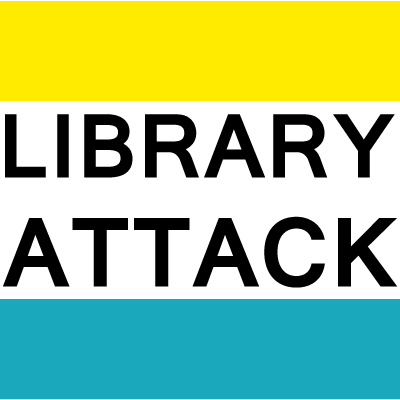This is Chris Zammarelli and his son Kieran cataloging something for the Department of State. I love this picture on many levels, but today I’m using to put a face on government librarians. This is a follow up from my sloppy and somewhat ranty post last week comparing SLA to the Bundesliga. I meant to really focus on the role of SLA on the professional association landscape, and how it’s often misunderstood or ignored. I think I botched that job, though I still believe it to be the case. Today, I’m talking about the libraries and librarians. This sort of fits with all the discussion of Big Tent Librarianship recently. The ever energetic Andy Woodworth wrote about it for Library Journal in December, the Annoyed Librarian addressed it as Public Library Privilege, and Andy responded to that with the Harper Collins frame. Hack Library School also weighed in on it. The thrust of this all is that if Big Tent Librarianship is going to work, we need to build relationships and communities that go beyond our job at hand. I find it interesting that Hack Library School illustrated the power of social functions to break down the barriers. The trick is to take it beyond happy hour.
I’m torn about this all, if you couldn’t tell. I like the idea of Big Tent Librarianship, but I also think it’s just another gimmick with a brand to empower some, enable others to talk the game, but really accomplish little. I also do sort of agree with the AL that it’s a reflection of the privilege public libraries have in the library landscape, though I would extend that to academic libraries as well. They make up the numbers and dictate the discourse. Look at ALA. Look at the library “thought leaders”.
This of course all started with my FriendFeed post, but I also know it doesn’t stop or end there. Steve Lawson commented that he felt Zammarelli, myself and Margaret Smith represented the special librarian view point, but really that’s still a narrow view. (It could also be argued that Zammarelli could be considered the only really legit representation of a special library since he works for the Feds, while Smith and I are academics.) As the public sector finally starts to address its budget issues in earnest, lots of small libraries are going to be under the axe, though they won’t conjure up the same outrage and indignation of public and academic libraries. Is it because it’s harder for most librarians to grok without any personal reference? Is it because people don’t see the practical value of these libraries? What about all the disappearing corporate libraries? There is a lot of information being lost and whole populations of people not being served, but since it’s not kids, students, or old people it’s hard for people to get too upset it seems.
Of course this is all coming from my weird corner of libraries. Though I work for a research institute at university, we serve the institute and public agencies throughout the state. My users encompass a wide range of people, from undergrads to post-docs, bus drivers to policy makers. My peers in the community work primarily for state and local agencies, though there quite a number of private companies and non-profits as well. Some libraries have staffs near 10 people, many are solos. We are a community. I know that as soon as my students graduate they will be working for a state agency or private consulting firm, and it reinforces that we’re in this together. A result of being a small, interdependent community is that I am very concerned with the existence of these government and corporate libraries. What’s the point of throwing money (ok, those days might be behind us) at research if you can’t tell what’s been done before? Libraries have played an important role in the research/analysis landscape for decades, but that’s changing due to funding, awareness, and apathy. I don’t think we’ve really begun to feel the effects, and the sad thing is I don’t think they will be as obvious as no story hour or 24-hour libraries during finals. That doesn’t mean they’re not as important.
So what do I think can be done? Well, the special librarians need to get out there and be more vocal. We need to make it harder to be ignored. What’s the impact of losing an agency library? Remember the EPA Libraries closings? Of course SLA had a lot of good coverage about it. It’s a tough situation as states are squeezing more and more, they are relying on the federal administrations, like the EPA or USDOT, to really help with the information needs of the community. We all need to be more aware of the costs and benefits all the time, not just when it’s a major crisis. It’s about communicating the value of information, but it’s hard when there’s really poor language about it. (Makes me think of SLA Alignment…) The thing is, special libraries don’t have the same language as public and academic libraries. For example look at this FriendFeed discussion about agony and apathy of advocacy in public libraries. It’s going to be framed differently with different language. (I have yet to meet a research administrator who cares about “patrons”.) We can learn a lot from each other. Listen and learn from one another, and hopefully we’ll sort this mess out.


Leave a Reply